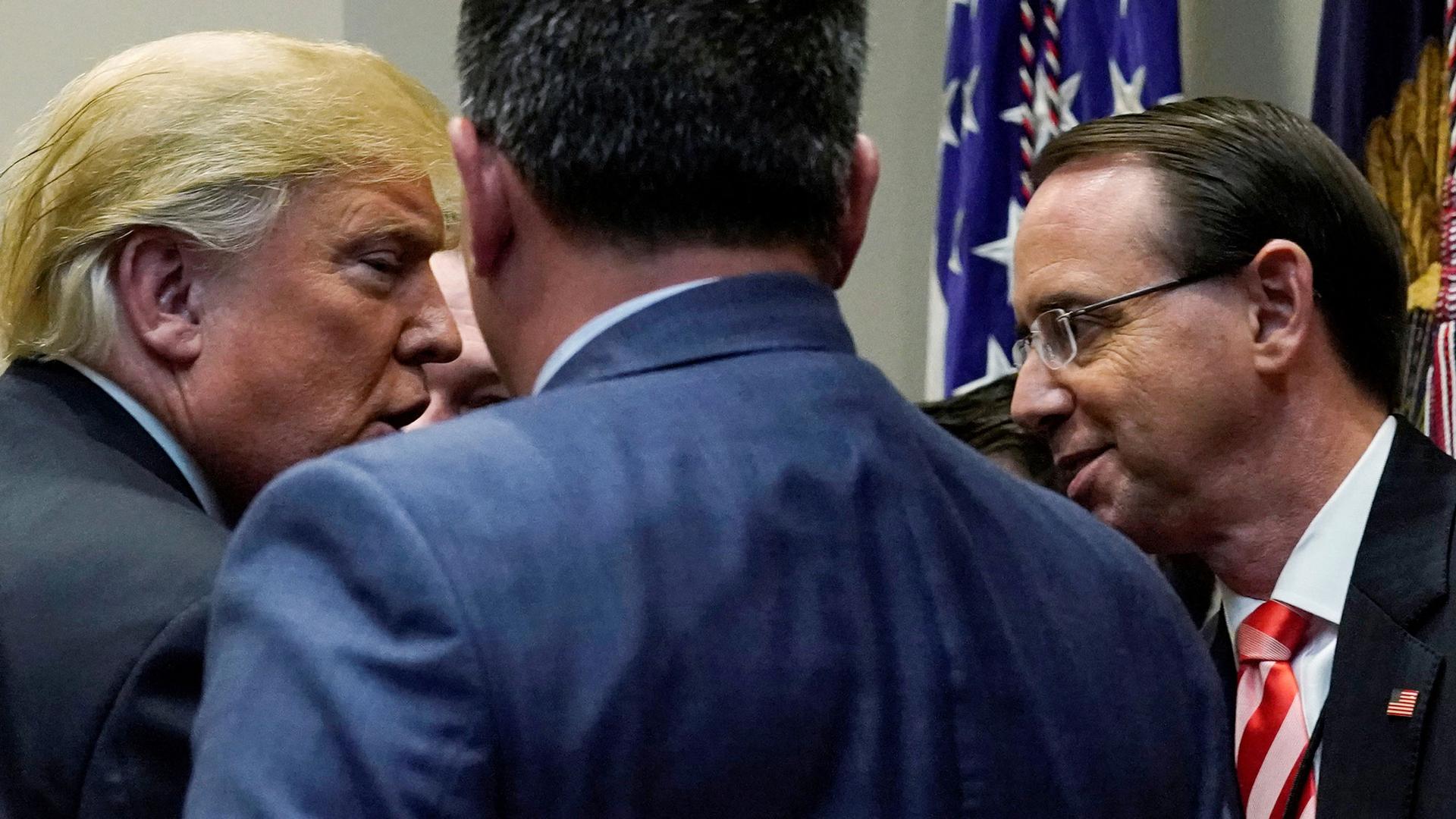President Donald Trump greets Deputy US Attorney General Rod Rosenstein (R) while participating in a signing ceremony at the White House, 2018.
The person overseeing Robert Mueller’s Special Council investigation into Russian election meddling in the 2016 elections, Deputy US Attorney General Rod Rosenstein, is preparing to leave the US Department of Justice, a department official said on Wednesday.
Rosenstein has had oversight of the Special Counsel’s probe after then-Attorney General Jeff Sessions, an early Trump supporter during the presidential campaign, had recused himself.
William Barr, Trump’s pick to replace Sessions who was fired soon after the November midterm congressional elections, is set to appear for a confirmation hearing next week before the Senate Judiciary Committee, which must weigh his nomination before the full Senate considers his approval.
The Department of Justice official, who asked not to be named since no announcement has been made, said there is no specific plan for Rosenstein’s departure and that he plans to leave sometime after Barr’s confirmation.
If confirmed, Barr, who was US Attorney General under the late President George H.W. Bush from 1991 to 1993, would oversee the investigation led by US Special Counsel Robert Mueller, a fellow Republican chosen by Rosenstein.
Barr’s nomination is likely to meet heavy scrutiny regarding the ongoing investigation, particularly from Democrats, following reports he had written a memo in June questioning the probe. Rosenstein has said the memo had no impact on the department’s work.
Rosenstein will stay on to ensure smooth transition with Barr, the official said, adding that he has seen his job as deputy as a two-year stint and is not being forced out.
Asked about Rosenstein’s departure, first reported by ABC News, White House spokeswoman Sarah Sanders said she had not spoken to Rosenstein and would leave any announced departures to him or the president.
“Certainly, I don’t think there’s any willingness by the president or the White House to push him out,” Sanders told Fox News in an interview.
Rosenstein has stayed on under Acting Attorney General Matt Whitaker, whose controversial appointment has sparked numerous legal challenges and raised questions about what role he would play regarding the investigation.
Rosenstein has been frequently criticized by Trump, who calls the Russia investigation a “witch hunt” and denies any collusion with Moscow. Russia has also denied any election interference.
US intelligence agencies have found that Russia sought to sway the 2016 presidential vote to Trump over Democratic challenger Hillary Clinton.
Reporting by Susan Heavey; Editing by Jeffrey Benkoe and Susan Thomas.
Our coverage reaches millions each week, but only a small fraction of listeners contribute to sustain our program. We still need 224 more people to donate $100 or $10/monthly to unlock our $67,000 match. Will you help us get there today?
